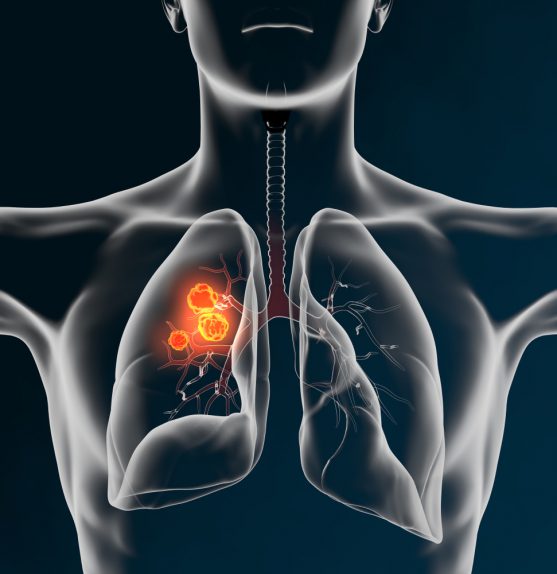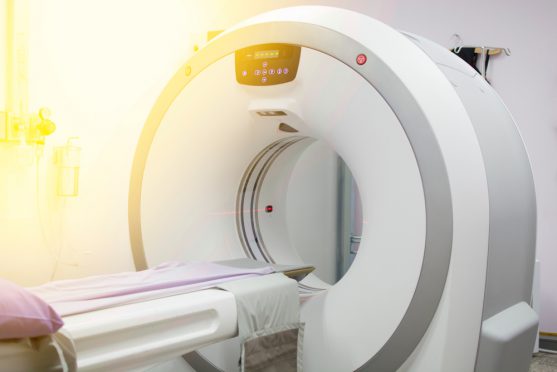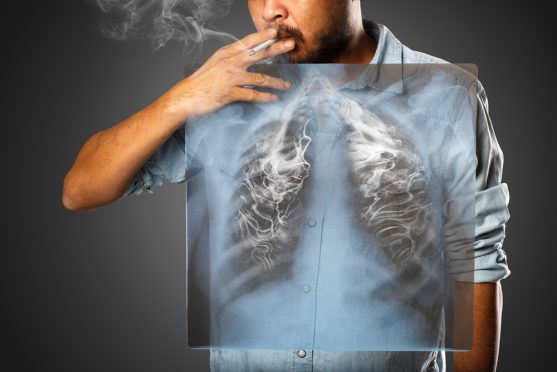The author of this article is Dr Tanmoy Kumar Mondal, Sr Medical Oncologist, trained from Tata Memorial Hospital. He is currently practising at Netaji Subash Chandra Bose Hospital, Kolkata.
As with all cancers, detecting lung cancer early can improve its the outcomes of treatment. However, it is mostly detected in the advanced stages, as there may not be any symptoms in the early stage.
Therefore, it is important that people who have a high risk for developing lung cancer are screened regularly.
Lung cancer statistics
Lung cancer is one of the most common cancers and led to 2.09 million cases and 1.76 million deaths in the year 2018, globally. It is the most common cancer in men and the third most common cancer in women.
In India, lung cancer accounted for 67,795 new cases and 63,475 deaths in the year 2018.

Based on the appearance of cells under the microscope, lung cancers can be categorized into small cell lung cancer (SCLC) and non-small cell lung cancer (NSCLC).
SCLC is an aggressive cancer mostly found in heavy smokers. It accounts for 10-15% of all lung cancers.
NSCLC is more common compared to SCLC, and accounts for about 80-85% of all lung cancers.
Lung Cancer Risk and Its Screening
According to studies, people who smoke cigarettes have a 15 to 30 times greater risk of developing lung cancer and dying from it than non-smokers.
Additionally, second-hand smoke, occupational exposure to asbestos, air pollution, and a family history of lung cancer also increases the risk of lung cancer.
Although lung cancer cannot be prevented, its risk can be reduced by taking necessary precautions, and screening is one among them.
Screening for lung cancer helps in early detection of cancer and prompt initiation of treatment that can reduce mortality.
Lung cancer screening method
Screening for lung cancer is done with a test called a low-dose computed tomography scan (LDCT). LDCT is a noncontrast study (which means IV contrast is not used) obtained with a multidetector CT scanner with a scanning time under 25 seconds.

Low-dose Computed Tomography (LDCT)
Radiation dose exposure is less than a third of a standard-dose diagnostic chest CT scan.
Clinical trials showed that screening with LDCT scan has reduced the risk of dying from lung cancer in people at high risk of lung cancer.
Should I get screened for lung cancer?
Lung cancer screening is not for everyone, it is recommended only in those who have a high risk for developing lung cancer.
According to the American Cancer Society (ACS), lung cancer screening must be done every year in individuals aged between 55 to 74 years who are in good health and who:
- have a history of heavy smoking. Heavy smoking means a smoking history of 30 pack years or more. A pack year means smoking an average of one pack of cigarettes per day for one year. For example, a person could have a 30 pack-year history by smoking one pack a day for 30 years or two packs a day for 15 years.
- are current smokers or have quit smoking for the past 15 years.
- are ready to receive counseling for smoking cessation if they are current smokers.
- are aware of the possible benefits and risks associated with screening.
Risks of screening
A lung cancer screening may carry the following risks:
- False-negative result: In some cases, a screening test may indicate normal findings when lung cancer is present. This may result in delayed treatment.
- False-positive result: In some cases, the screening tests may suggest the presence of cancer when there is no cancer present.
- Overdiagnosis: Sometimes, a screening test may detect problems that might never cause any harm. This may result in unnecessary treatment.
- Radiation exposure: Screening tests result in radiation exposure, which may increase the risk of lung cancer.
Prevention of lung cancer
Lung cancer cannot be prevented completely, but taking preventive measures to avoid the risk factors may lower the risk of lung cancer.
Risk factors that you should avoid

Smoking is the most preventable cause of lung cancer
- Cigarette smoking and secondhand smoke : The best way to reduce the risk of lung cancer is to not smoke and to avoid breathing in smoke from cigarettes being smoked by others around you. Smoking cessation before the development of cancer repairs the damaged tissue gradually and lowers the risk of lung cancer.
- Workplace exposure: Limit or avoid exposure to certain workplace chemicals, such as asbestos, arsenic etc. Exposure to these chemicals may increase the risk of lung cancer even in non-smokers.
- Air pollution: Avoid outdoor activities in areas with high traffic and in industrial areas. Limit going out when pollution levels are high. Wear a mask while going out.
Prevention
Having a healthy diet rich in fruits and vegetables, and exercising regularly, may help reduce the risk of lung cancer. There are studies which suggest that a diet high in fruits and vegetables may help protect against lung cancer in both people who smoke and those who don’t.

Include plenty of fruits and vegetables in your diet
You can read more about the foods that are good for your lungs here.


